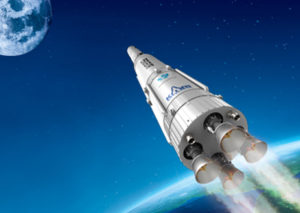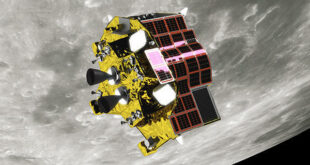
The Korean Aerospace Research Institute (KARI) has announced that it is postponing the planned engine test of its Korean Space Launch Vehicle-II (KSLV-II) rocket engine after a pre-test check found a problem with the engine’s propellant pressurization system.
The single-stage rocket with South Korea’s first home-made booster engine was scheduled to be tested later this week at a space center in the southern coastal town of Goheung.
According to a report in Aju Business Daily, engineers were checking the engine’s fuel supply process when they discovered a pressure drop in the propellant pressurization system. This system is used for injecting fuel and liquid oxygen from the tank.
In announcing the postponement of the test on 17 October 2018, the South Korean Ministry of Science and ICT also said that a new test date would be set again later. The rocket was moved from the launch pad into the centre’s assembly station for analysis.
The test launch is intended to verify the performance of a 75-ton thrust engine which will be used for a three-stage Korea Space Launch Vehicle-II (KSLV-II) rocket in 2021.
To date, KARI has launched three rockets; however, two of them, fired in 2009 and 2010, failed to reach orbit. The third rocket, which used Russian technology, successfully put a satellite into orbit.
There has been slow progress in the country’s space programme as other countries are reluctant to transfer core technologies to South Korea for its KSLV-II rocket. Under a new roadmap, South Korea plans to send an unmanned orbital probe to the Moon by 2020 and land an unmanned lunar probe to the surface of the Moon by 2030.





